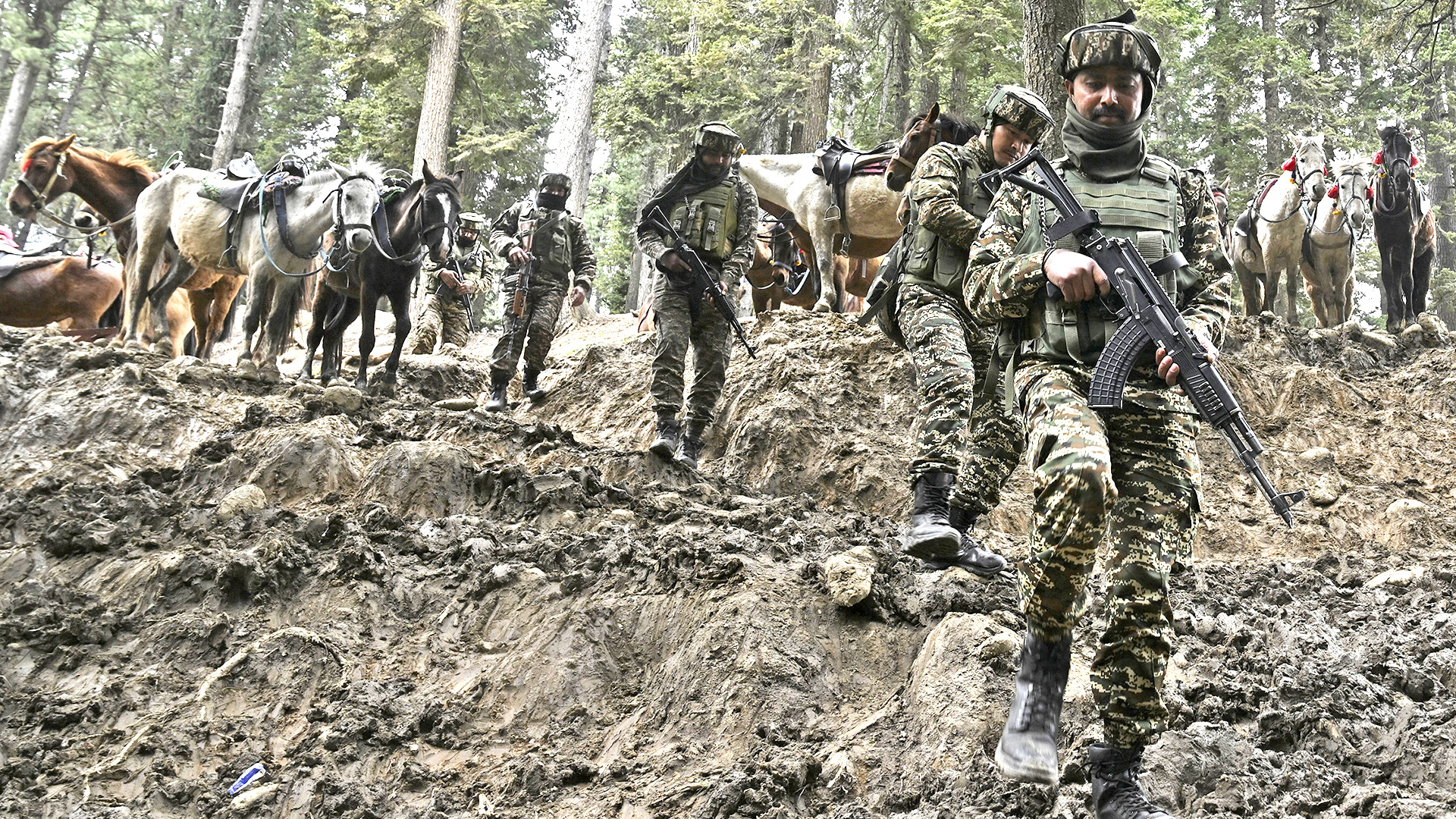With the world already on edge about events in the Middle East, Europe, and the Pacific, a potential new conflict is brewing between the nuclear-armed nations of India and Pakistan. The long-simmering tensions between the two neighbors have boiled over in the wake of Tuesday’s deadly attack on tourists in the disputed Kashmir region. Since then, both sides have taken diplomatic and military measures that further escalate the situation and some observers believe it could erupt into an armed conflict.
India and Pakistan cancelled visas for their nationals to each other’s countries on Thursday, and Pakistan closed its airspace to Indian aircraft. In addition, Pakistan “has issued a NOTAM (Notice to Airmen/Mariners) for the Arabian Sea and initiated a naval live fire exercise, while putting its military on full alert in anticipation of a possible military response by India in the wake of the Pahalgam terror attack,” The Print, an Indian news outlet, reported.

India, meanwhile, has the aircraft carrier Vikrant in the Arabian Sea. While the vessel deployed before the Kashmir attack, it is now doing loops in the area as a possible contingency, posited Damien Symon, a geo-intelligence researcher for The Intel Lab intelligence consultancy.
New Delhi is also weighing the possibility of a limited airstrike on Pakistan, something it last did in 2019 after another deadly terror attack.
“There are a variety of military options, short of a full-blown war, on the table,” the Times of India (TOI) reported, citing a senior military official. “It’s for the political leadership to take the final call. If there is a go-ahead, then the retaliatory strikes will be at a time and place of our choosing.”
The “escalation risk is very high,” TOI reporter Rajat Pandit surmised to us. However, any conflict “will be limited action if it happens.”
India’s top leader, under intense domestic pressure to respond to the attack, hinted at future action.
“India will identify, track and punish every terrorist, their handlers and their backers,” Indian Prime Minister Narendra Modi said at a public rally on Thursday. “We will pursue them to the ends of the earth.”
In another move that could lead to conflict, India suspended the Indus Water Treaty. Brokered by the World Bank in 1960, “it allows for sharing the waters of a river system that is a lifeline for both countries, particularly for Pakistan’s agriculture,” The Associated Press noted.
“In a communique issued following a meeting of the National Security Committee (NSC), Pakistan’s top civil-military decision-making body, Pakistan warned India that any disruption of its water supply would be considered ‘an act of war,’ adding it was prepared to respond ‘with full force across the complete spectrum of national power,’” Al Jazeera reported.
The Himalayan territory of Jammu and Kashmir have been a major source of contention between the two countries ever since 1947, when each gained independence from Britain. India and Pakistan both control parts of Kashmir but claim the entire territory. Since independence, India and Pakistan have fought four wars, three of them over Kashmir.
The last time these two nations came to blows followed a 2019 terror attack on an Indian Central Reserve Police Force convoy in Kashmir. After that attack, the Indian Air Force hit a jihadi camp in Balakot, a city in Pakistan just west of Kashmir. A day later, the Pakistani Air Force retaliated with a strike on the Rajouri sector of Jammu. In the ensuing aerial battle, India claimed to have shot down a Pakistani F-16 fighter aircraft while losing a MIG-21 whose pilot was captured after he was forced to eject over Pakistani-held territory.
The tit-for-tat airstrikes marked the first time Indian combat aircraft had crossed the line of control publicly since the two countries fought a major war in 1971 and the first time this has occurred since both countries acquired nuclear weapons.
Later in 2019, Modi “overturned the status quo in Kashmir in August 2019, when his government revoked the region’s semi-autonomous status and brought it under direct federal control,” the AP explained. “That deepened tensions in the region, but things with Pakistan held stable as the two countries in 2021 renewed a previous ceasefire agreement along their border, which has largely held despite militant attacks on Indian forces in the region.”

That relative calm has now been broken.
While some observers believe that a new India-Pakistan fight would most likely be limited to surgical airstrikes, the fact that both nations possess nuclear weapons makes any conflict even more alarming.
Contact the author: howard@thewarzone.com
